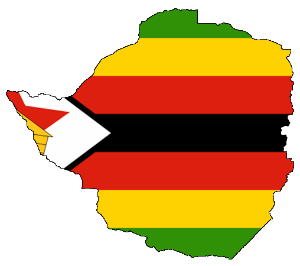Zimbabwe’s future leadership warned to embrace tech
Zimbabwe’s future leadership warned to embrace tech

Tech experts in Zimbabwe warn that irrespective of what government is elected to power after 30 July 2018 elections, leaders must fine-tune cyber legislation, ICT policy and review telecom licencing to facilitate the entry of VPNs.
In the polls, incumbent leader Emerson Mnangagwa is up against MDC Alliance leader Nelson Chamisa, a former IT minister during the government of national unity which ended in 2013.
Harare-based social media strategist Godknows Homwe said: "If Chamisa wins there is more appreciation of technology, while an ED victory will also have improvement - but it will be limited."
Homwe believes the tech evolution will force any new dispensation to embrace e-commerce and technology in industries such as aviation, especially ahead of upgrades planned for Zimbabwe's biggest airport, the Robert Gabriel Mugabe International Airport.
He added, "We have a cyber security bill that is yet to be finalised but which should now be advanced and improved to curb social media abuse and I believe we will actually see an improvement. My worry is that we may see the government (being) heavy-handed in its approach, especially if it's going to be a Mnangagwa and Zanu PF victory."
IT consultant Chris Musodza said, "I am surprised that telecom and IT are not big talking points in this election. Any of the two major contestants will obviously have to deal with the cyber legislation, which is key for any country that wants to be seen as open to embracing tech and dealing with the risks associated."
Companies were recently urged to apply for VoD and content distribution services, with companies including TelOne, Econet and Zimbabwe Newspaper Group given the green light to provide these services.
This brought an end to Kwese TV's licensing dilemma, although there is no certainty as to how a new government will regulate smaller content companies that thrive on live-streaming through Facebook and YouTube.
"Mnangagwa has licensed Kwese, but we don't know what the situation is for YouTube and Facebook streaming for other companies," said Musodza.
Reviewed licensing
Musodza believes the licensing framework for telcos and ISPs should be reviewed to allow for de-centralised operators at provincial and district level to help reduce costs.
"The licensing framework for the telecom industry should change; it should be broken down because under the current scenerio, broadband fees are high because of the intensive nature of capital and infrastructure lay out," he said.
Industry analysts also say there should be more operators in the country's mobile technology space to tackle Econet's dominance as the sole private operator.
NetOne and Telecel are both state-owned. Officials have indicated that there is no room for a new mobile company, although fixed phone operator TelOne holds a dormant MNO permit.